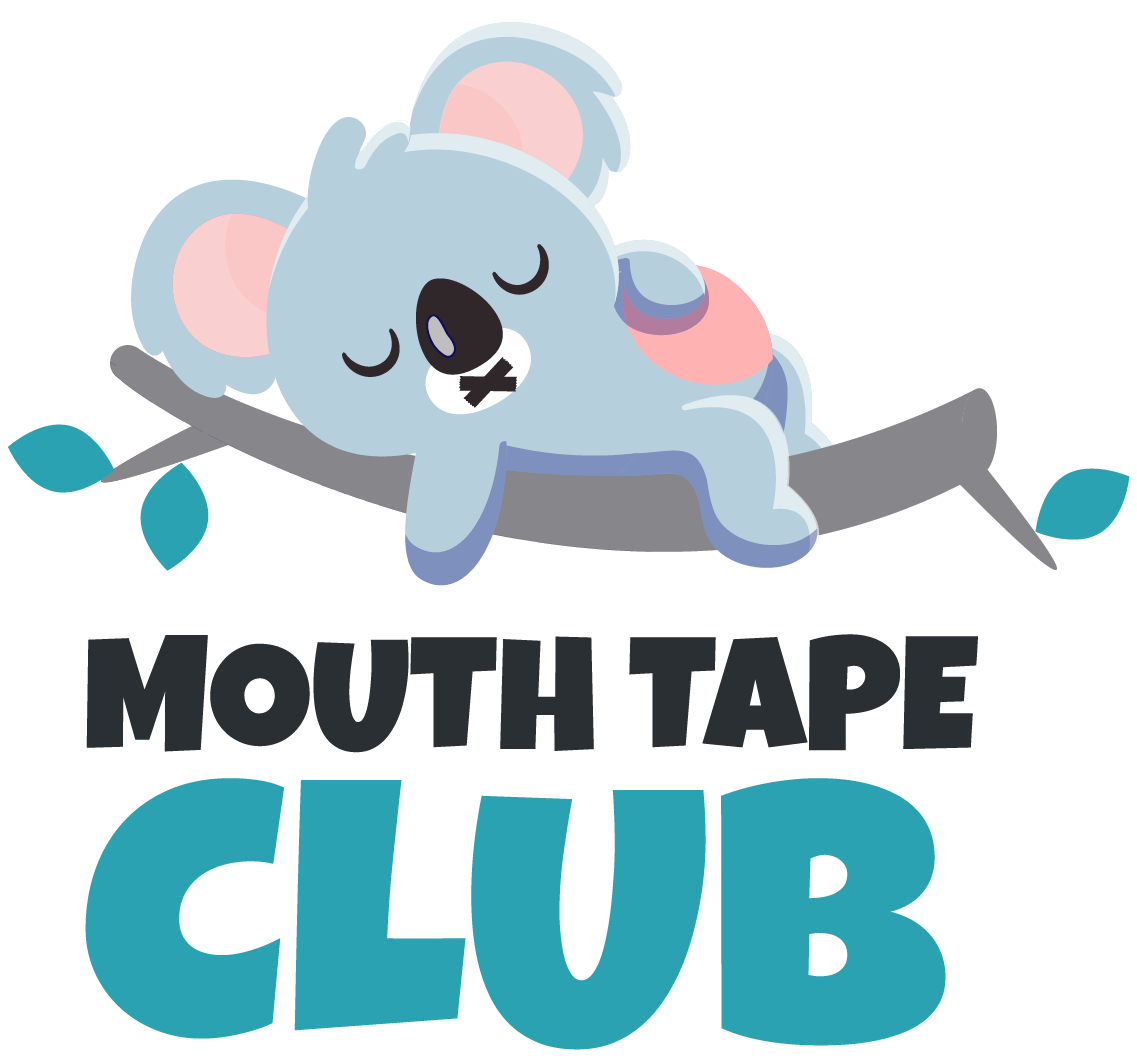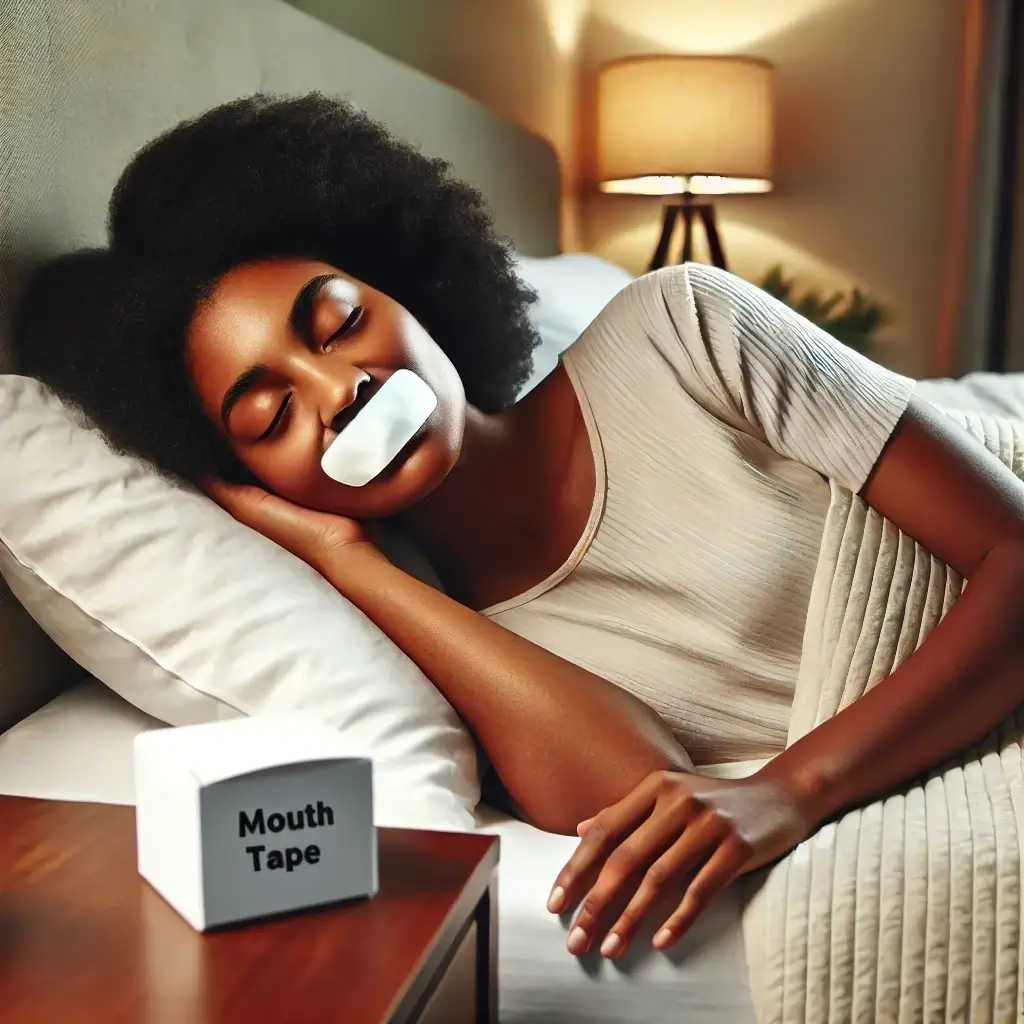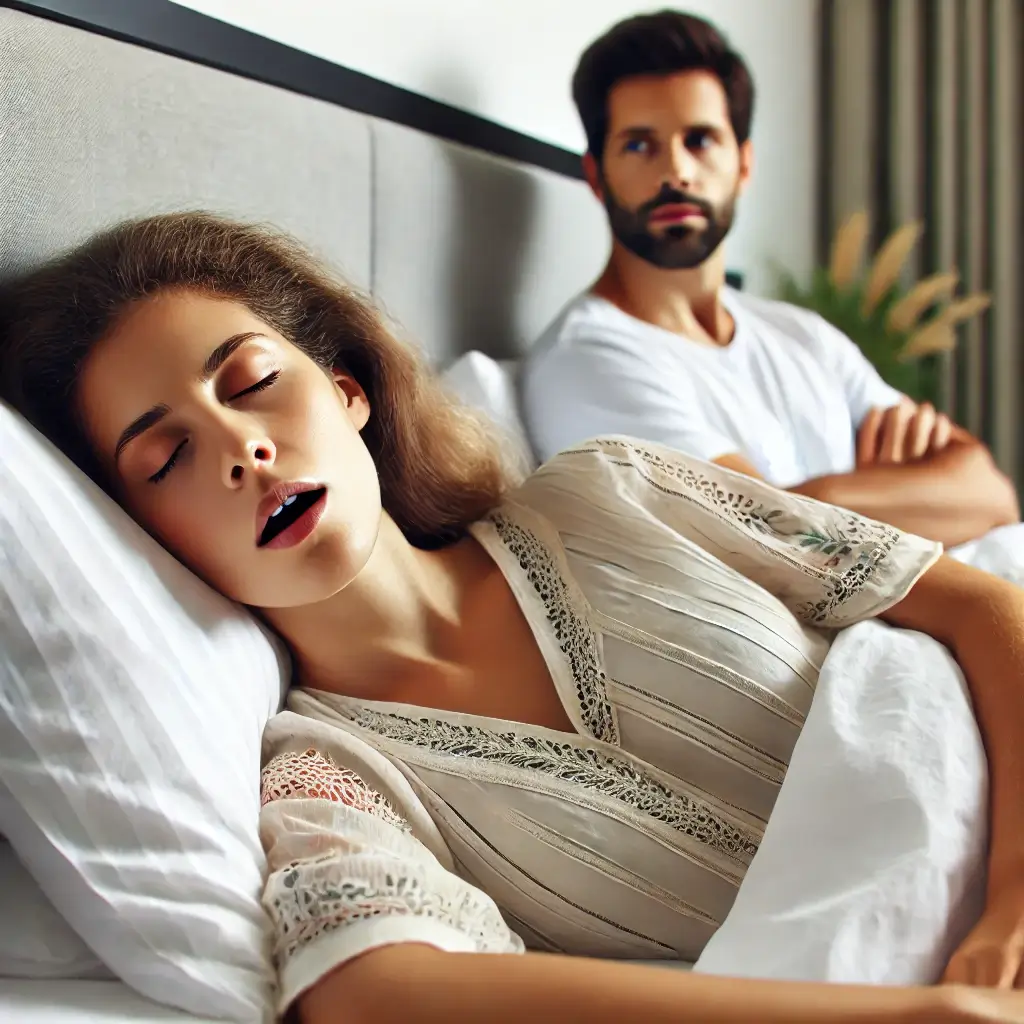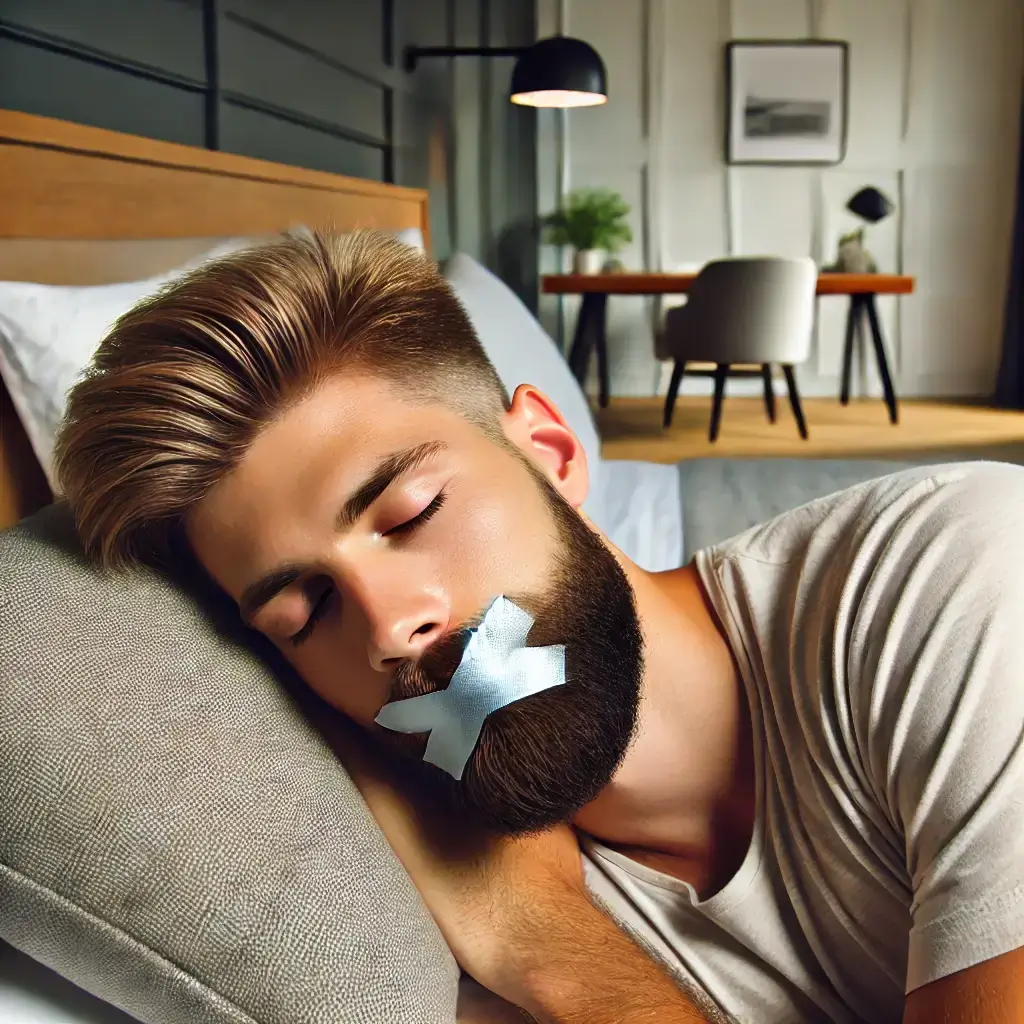Many people have difficulty keeping their mouths closed while sleeping. Many don’t realize that most breathing happens through their mouths at night. While breathing is necessary to keep us alive, most don’t always pay close attention to how we breathe. Mouth-breathing can cause some significant health problems, including sleep apnea and fatigue. It can also cause more annoying issues, like snoring, dry mouth, or bad breath.
The good news is there are some simple changes that you can make when preparing for sleep to help you keep your mouth closed and your nasal passages open. In more severe cases, it’s possible you may need the use of a device or consult with a doctor for assistance, particularly if you discover that you suffer from chronic mouth breathing. Here are five easy things you can start putting to practice today to help you work on sleeping with your mouth closed each night.
1. Go to Sleep With Your Head Up
If you sleep on your back or side, you can easily help keep your nasal passages open by elevating your head with an extra pillow. Before you go to sleep, think about angling your pillow(s) so that your head stays up and you’re more accessible to breathe in air through your nose. Most people don’t understand that nasal congestion can occur without a cold, allergies, or flu; laying flat on your pillow can obstruct your regular breathing. It forces you to become a mouth breather because your body needs to breathe more deeply at rest.
Likewise, obstructive sleep apnea can occur when the muscles in the back of your throat are too relaxed to allow for regular, deep breaths. Instead of having obstacles while you’re asleep, try to make your airways as open and clear as possible.
2. Get More Exercise in Your Routine
Believe it or not, exercise plays a role in regulating your natural breathing patterns. Your body naturally needs more oxygen when you work out and puts your nasal passages to work to ensure you get the proper air.
In many cases, yoga or meditation focuses on nasal breathing. These exercises have additional benefits, including helping to maintain a healthy weight, reducing stress, and helping calm you. Stress or anxiety can trigger mouth breathers because your nervous system is more active, and you’re more likely to take rapid and shallow breaths.
3. Practice Breathing Through Your Nose More
When conscious of how you breathe, you can more knowingly cease mouth-breathing. During the day, try to be mindful of breathing more through your nose. The more you practice, it can become a habit, and you’re more likely to keep your mouth closed when sleeping.
There are occasional reasons for breathing through your mouth when sleeping, such as when you’re congested or have a sinus infection. Your nasal passages are usually blocked due to inflammation, so you’re forced to breathe through your mouth.
However, there are instances where you may have another issue, such as nasal polyps or a dental issue that affects your breathing patterns. People with underbites, overbites, or crossbites are more likely to be mouth breathers when sleeping. Other habits, like grinding your teeth, can impact breathing and keeping your mouth open. You might consider visiting your dentist about products to help keep your mouth shut at night.
Enlarged tonsils are another deterrent to being able to breathe through your nose at night. It’s helpful to speak to a doctor about your concerns if you notice that you’re a frequent mouth-breather. Your doctor can help with performing tests and doing evaluations to determine the cause and help you work to find a solution to sleep with your mouth closed.
4. Consider a Nighttime Device
Your doctor may notice that you suffer from sleep disorders and suggest using a device at nighttime. Some of the most common devices include:
Chin Strap
Chin straps are simple enough to use; you hook them around the top of your head, and it holds your mouth closed at night, usually with a velcro strap. It may feel uncomfortable the first few times you use it, but give it some time so you can get used to it, especially if it’s working.
Mouth Guard
Another device that helps, more particularly with grinding your teeth and working with bites, is a dental mouth guard. Mouth guards prevent mouth-breathing since they force you to breathe through your nose. They also help to prevent you from grinding your teeth and causing jaw pain, as well as snoring and help you take proper care of your oral health.
Nasal Dilator
If the problem lies within opening your nasal passages, a nasal dilator helps hold your nose open. This way, you get continuous positive airway pressure without any blockage. Some stents go in your nostrils, or a clip or small adhesive strip goes over your nose.
Many adults can find these devices over the counter. But it’s a good idea to speak to a dentist or doctor before purchasing to ensure it’s a good option for helping with your mouth-breathing. Ask them questions to help with how to use the device, or check out a YouTube video tutorial so you know you’re using it properly.
5. Mouth Taping
It may sound a little unorthodox, but one last helpful sleep hack you might consider if you have trouble keeping your mouth open is mouth taping. You put surgical tape over your mouth to keep it closed while sleeping. It keeps you from snoring and forces you to breathe through your nose.
You should consult a doctor before attempting to use mouth tape. It could be a dangerous practice that will cause you to have more obstructed breathing, so this method should be used carefully. You don’t want to end up with health issues unintentionally. Your lips might also suffer from the adhesive tape, so be cautious of the type of tape you use if you decide to go this route (i.e., don’t use duct tape!) because you could end up with an allergic reaction.
Aid Your Physical Health with Closed-Mouth Sleep
You may benefit from medications or alternative treatments after consulting with a doctor to help with your mouth breathing. Those who suffer from sleep apnea may need assistance from a machine to help regulate their breathing during sleep.
Consider the health benefits that come from breathing more through your nose. Your air is more regulated and filtered, and you reduce risks for health problems, including high blood pressure, stress, and other disadvantages that stem from mouth breathing. Try some techniques and discover what works best to ensure you don’t leave your mouth open when you sleep.



